Table of Contents
Join Thousands of Hotels Thriving with roommaster
The transition to roommaster is straightforward and efficient. Our implementation team handles data migration including reservations, guest profiles, and historical information.
Artificial intelligence (AI) has transformed how hotels operate by driving faster decisions, smarter workflows, and higher profits. From 2018 to 2024, AI and machine learning accounted for 65% of all tech investments in travel and hospitality. Additionally, a 2023 industry survey found that global hotel chains expect AI to deliver more innovation than any other technology over the next two years.
AI tools help hotels personalize guest communication, predict maintenance issues, forecast revenue accurately, and target marketing efforts more effectively. Beyond convenience, it unlocks hidden data patterns, identifies trends, and helps teams respond to demand changes before they affect service. As a result, hotels improve guest experiences, reduce costs, and connect departments through accurate, shared insights.
In this guide, we will explain the types of AI tools hotels use today and how these technologies enhance every department, from front desk to revenue strategy.

AI in hotels refers to the use of artificial intelligence technologies to automate, optimize, and personalize different hotel operations, from guest services to revenue management and backend workflows. By 2026, experts expect the AI travel and hospitality market to exceed $1.2 billion in value. While many see AI as a recent trend, hotels have quietly used it for years to support tools like facial recognition and pricing systems.
Teams use AI to solve real-time problems, boost productivity, and deliver better guest experiences.
These practical examples show how AI is transforming the hotel industry with real value.
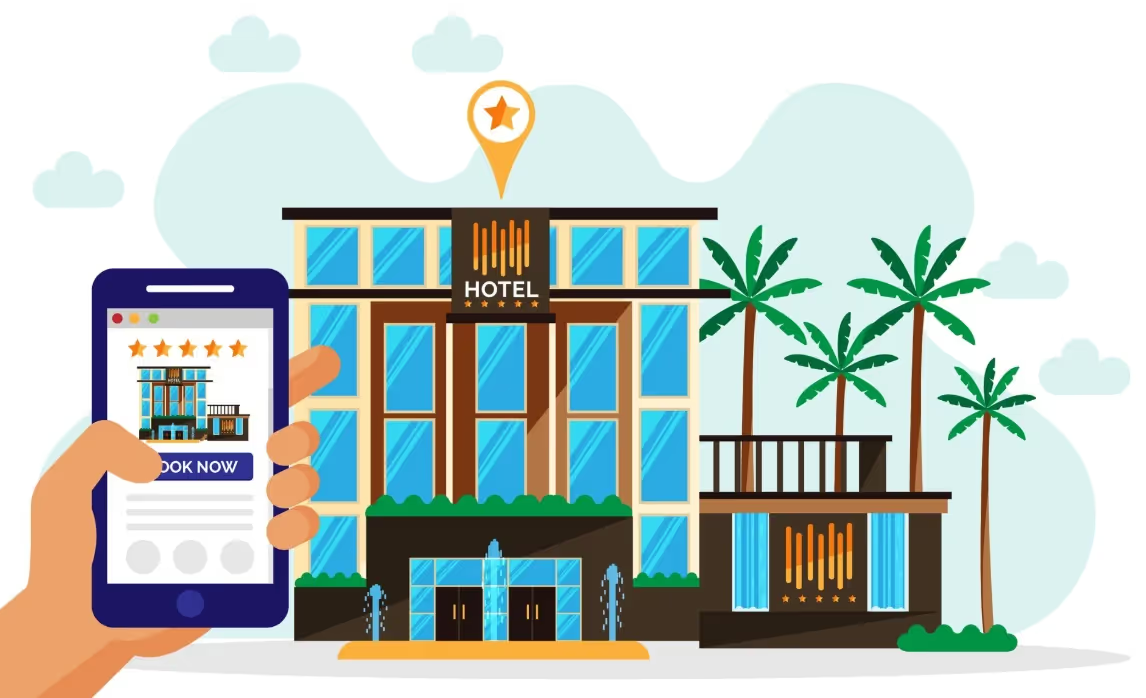
Hotel Tech Report surveyed 400 guests as part of the 2025 State of Hotel Guest Technology Report. The results provide real insight into how guests actually experience AI in hotels today.
These findings reflect the growing demand for responsive, smart tools powered by AI in the hotel industry. Guests are ready for AI, but only when it helps solve the right problems at the right time.
Hotels are beginning to apply AI in targeted ways that boost customer satisfaction, reduce workload, and increase revenue. Below, we break down the key areas where AI technology streamlines hotel operations:

Hotels need complete visibility into guest feedback to catch common complaints, language trends, and service highlights. To do this manually, staff must read every review, identify patterns, and track sentiment changes over time.
AI in hotels uses natural language processing to scan reviews, label tone, and assign sentiment scores. It spots subtle shifts in guest language, even when ratings still appear positive. Operators then use this data to adjust services, improve problem areas, and strengthen what already works.
Many tools also segment feedback by location or property, helping leadership in AI within a hotel group identify broader trends. This targeted feedback loop helps teams act faster and raise guest satisfaction through specific, data-backed changes.

Guest messaging tools bring all conversations into one place, combining emails, SMS, WhatsApp, and app chats. This lets hotel staff respond quickly before check-in and continue helping guests throughout their stay. With AI in hotels, generative tools now reply to common questions automatically, make local suggestions, manage room service, and handle service requests without human help. These assistants give front desk teams more time for in-person interactions and reduce long queues at peak times.
Hotel and property management systems (PMS) like roommaster use guest profiles to send the right message at each stage of the stay. Pre-arrival notes, on-site tips, and post-stay messages can all be personalized using stored guest history and preferences. Whether you’re greeting a first-timer or offering a promo to a returning traveler, the timing and tone matter.
{{pms-five}}
Hotels using roommaster often double their review response rates and increase repeat bookings by as much as 30%. Those gains show that consistent communication drives guest loyalty and long-term revenue.
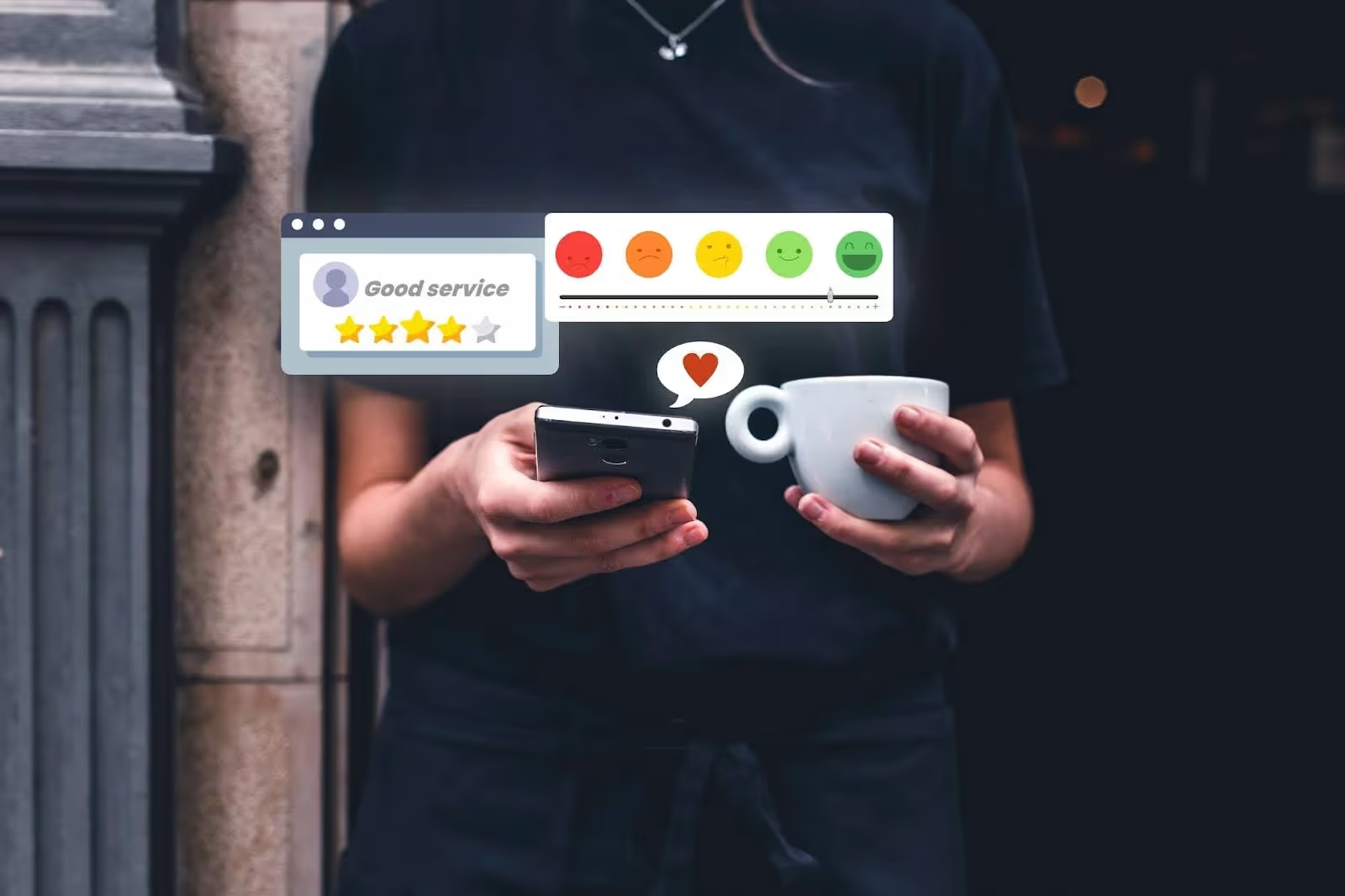
When hotels respond to online reviews, they tend to receive higher ratings and better visibility in search results. Reputation tools powered by AI in hotels collect reviews from platforms like Google, Tripadvisor, and OTA channels into one dashboard for faster tracking. This saves time and gives managers one clear view of what guests are saying across platforms.
Writing unique responses to each review takes time, especially if you want to avoid copy-paste replies. New tools now use generative AI to create custom responses that feel human, using prompts like “reply in a helpful and professional tone.”
For example, if a guest writes, “The service at the hotel’s restaurant is terrible. The servers act like they’re doing you a favor. For such a nice hotel, I expected better service and not to wait 10 minutes just to get noticed. Do better.”
AI will instantly suggest a message such as:
“Dear [guest name], Thank you for your feedback. We apologize for the poor service you experienced at our restaurant. This is not the standard we aim for, and we’re working with our team to fix it. Please reach out to me directly if you have more concerns, and we hope you’ll give us another try.”
These tools speed up the process, but still let staff review and personalize each response before posting. That balance helps hotels maintain fast, thoughtful communication without lowering quality.
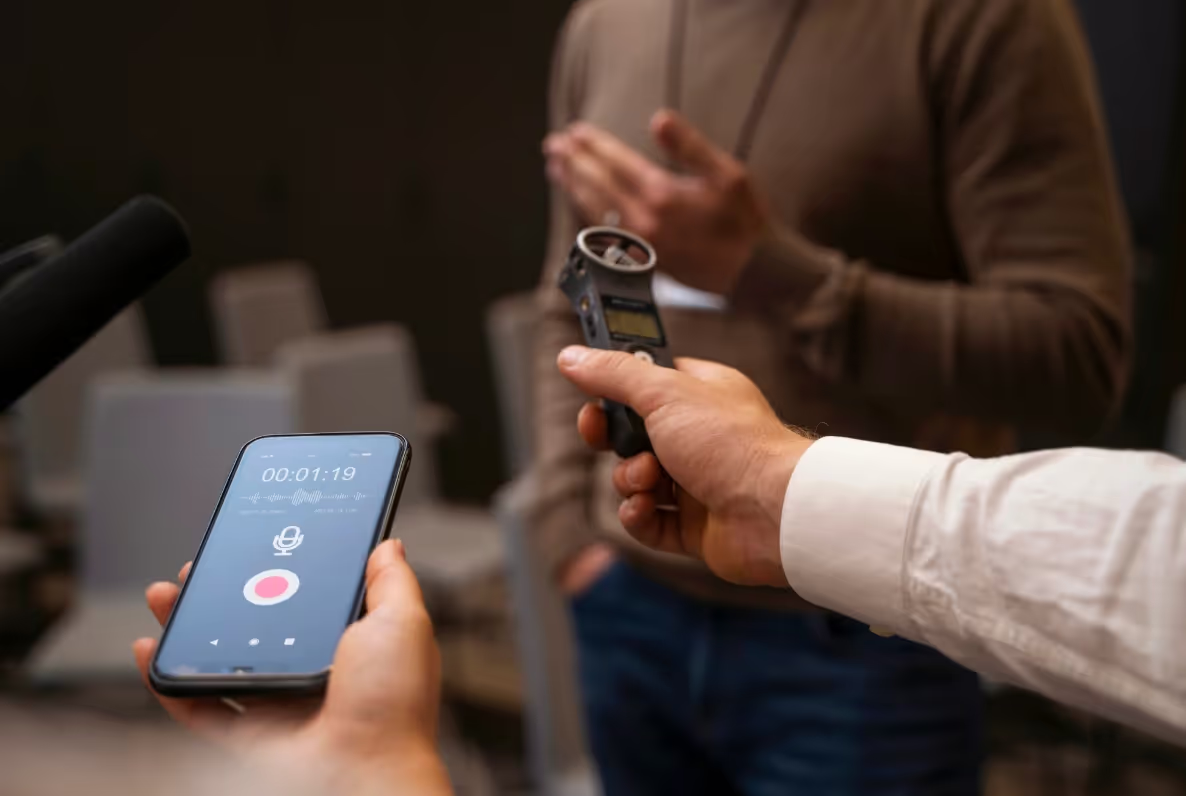
Hotels lose many bookings when phone calls go unanswered during peak hours or off-peak hours. Staff shortages and frequent turnover make it hard to maintain consistent service, especially when guests speak different languages.
roommaster Concierge stays available around the clock, speaks multiple languages fluently, and turns inquiries into confirmed bookings without human help. This system manages common questions and booking requests at any time, allowing your staff to focus on complex guest needs and face-to-face service.
Hotels using roommaster Concierge often see booking conversion rates rise sharply from phone calls while reducing pressure on front desk teams during peak periods.
{{concierge-three}}
AI changes how hotels improve guest experience by removing obstacles and highlighting individual preferences rather than replacing staff. From mobile check-in to real-time messaging and virtual concierge services, AI handles repetitive tasks around the clock, giving hotel teams space to focus on meaningful guest interactions. In fact, 58% of guests said that AI tools improved both their booking process and on-property experience.
However, hotel leaders agree that technology must not replace the human connection that makes stays memorable. Manoj Jangid, General Manager at Fairfield by Marriott Kolkata, captures this perfectly:
"The hospitality industry thrives on warmth, empathy, and human connection, qualities no algorithm can fully replicate. Artificial Intelligence is undoubtedly revolutionising the way we operate, from personalised guest experiences to predictive maintenance and efficient resource management. But will it replace humans? I firmly believe it will not. AI should be viewed not as a threat, but as an enabler. Chatbots can streamline inquiries, but they cannot replace the genuine smile at a front desk. Data can predict guest preferences, but it takes human instinct to anticipate unspoken needs.”
He further added,
“At its best, AI complements human effort. It helps us work smarter, not less human. The future of hospitality is not man versus machine but man with machine. The heart of this industry will always beat to the rhythm of human care, and technology should only strengthen that pulse. So no, AI will not replace us. But in the hands of thoughtful hoteliers, it will absolutely enhance us."
Jangid’s words reflect the truth that AI in hotels should anticipate needs, assist personalization, and speed up response times without replacing the human touch that creates unforgettable moments.
This balance matters most when defining your hotel’s personality and reputation. Some properties focus on speed and efficiency, while others build loyalty through warmth, high-touch service, and genuine personality. What your brand represents depends on how you combine technology with heartfelt service to stand out in a crowded hospitality sector.
AI quietly changes hospitality operations by automating administrative tasks and managing resources in a labor-tight industry. These tools recommend staffing levels based on forecasted demand, spot excess supply orders, and generate routine reports without human delay.
For example, roommaster Concierge helps by:
At the front desk, AI speeds up check-in by handling identity checks and payment verification, which cuts down wait times and reduces mistakes. Hotels using AI improve efficiency behind the scenes, allowing staff to focus on guests instead of paperwork or repetitive tasks.
Revenue management has always relied on data, but until recently, most systems focused only on past trends. Today, AI helps move hotels from reactive analysis to strategic foresight by identifying why booking patterns happen, not just when they do.
Causal AI is powering this shift by identifying what actually drives guest decisions. Instead of only spotting demand spikes or low-booking windows, it digs into pricing sensitivity, lead time, and marketing influence to suggest smarter moves.
AI doesn’t replace revenue managers but helps them work more strategically. It takes over time-heavy tasks like analysis, forecasting, and reporting, allowing teams to focus on pricing and strategy. In fact, a study by ZS and HSMAI found that revenue managers spend 51% of their time on work that doesn't generate direct revenue. With AI handling the analysis, managers can focus on strategy, testing offers, or working closely with marketing teams.
For independent hotels without dedicated revenue staff, this kind of help can make all the difference. Many small properties still use flat pricing that doesn’t respond to changing demand. roommaster Revenue Optimization gives them the same tools large chains rely on, without needing a big team.
Once you define your pricing strategy, the rule-based engine runs nonstop behind the scenes. It watches demand signals and market shifts, adjusting rates automatically to help you:
Most hotels using this system see a 15–20% boost in RevPAR in their first year. That’s revenue they were leaving behind with static pricing.
roommaster also connects with the ampliphi RMS, bringing automated pricing, performance insights, and rate control into one connected platform. Together, these tools make dynamic pricing possible for hotels of any size, with or without a revenue team.
AI is changing the hospitality industry, but hotels must do more than upgrade technology to adopt it. Many hotel staff feel concerned about job impact, which makes cultural change essential for success.
Hotels encounter several challenges when adopting AI, including high upfront costs, complex integrations, and limited technical skills. Small and independent hotels struggle more because they lack resources for training and setup.
Choosing AI solutions that fit your budget, require little technical knowledge, and come with strong customer support makes adopting easier. For hotels with complicated needs, working closely with AI vendors who provide custom training and hands-on onboarding reduces frustration and speeds up adoption.
{{concierge-one}}
Taking a step-by-step approach helps hotels introduce AI without overwhelming teams or disrupting daily work. Start with small projects that solve immediate problems, such as AI chatbots handling guest questions or pricing tools adjusting rates automatically.
After these succeed, expand AI into other areas such as predicting future revenue or automating housekeeping schedules. This gradual method lets your hotel test each AI tool’s value and fix issues before rolling out more complex solutions.
When choosing AI software for your hospitality business, base your decision on your hotel’s size, property type, and daily operational needs. Look for tools that work smoothly with your property management system, guest databases, and existing platforms. A good fit makes setup easier and prevents disruptions to your team’s daily work.
Before selecting a solution, ask these key questions:
roommaster offers more than 100 ready-made connections to critical hotel systems. Its open API design allows your hotel to adapt quickly and avoid juggling multiple platforms. This unified system can cut administrative work by up to 30% and provides a clear picture of guests across every interaction.
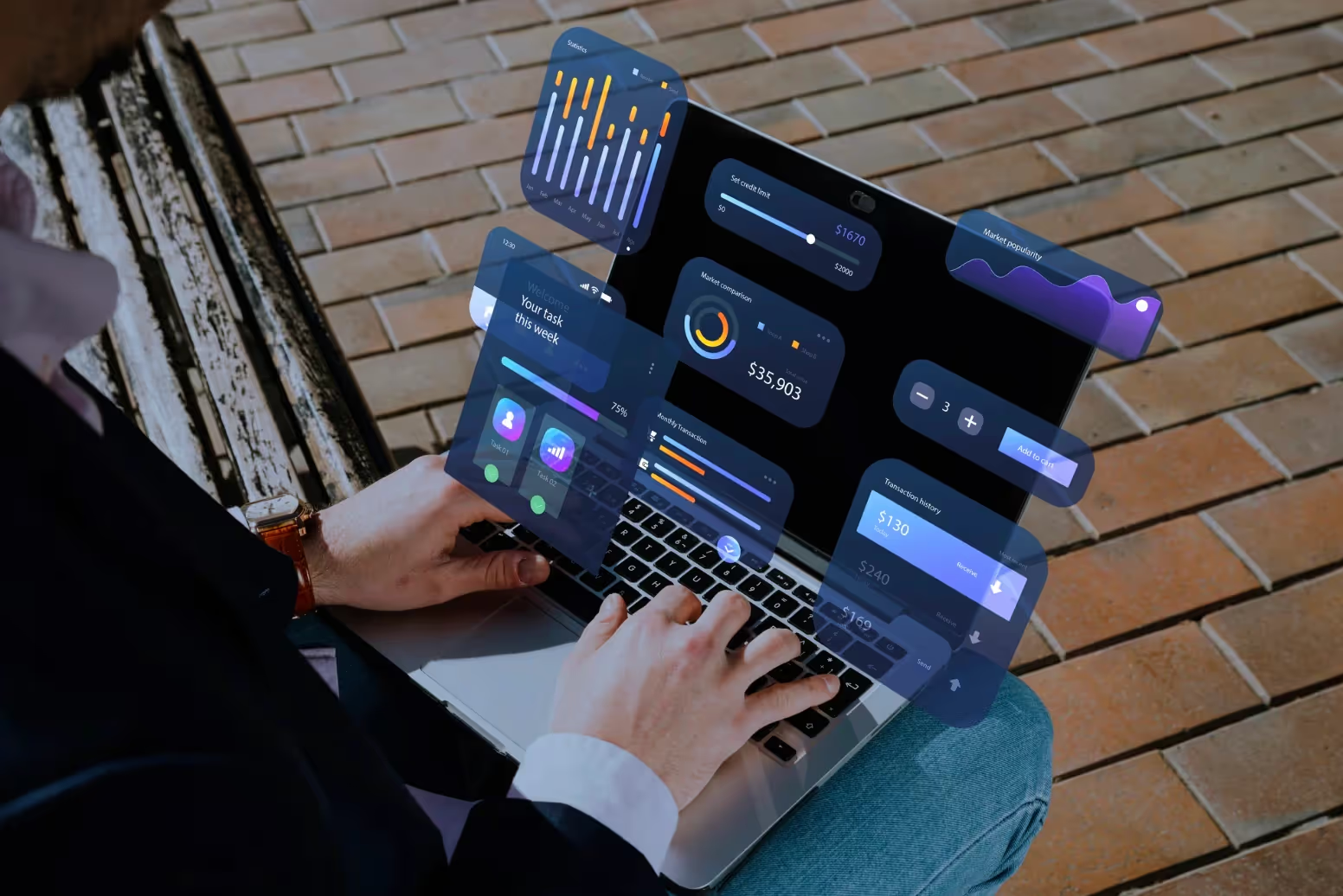
To stay ahead, hospitality leaders must actively pursue open innovation by partnering with startups, tech firms, and research groups to develop new AI solutions faster. These collaborations bring fresh ideas from outside hospitality, including FinTech, mobility services, and health technology companies. By working across industries, brands create guest experiences that traditional research alone cannot produce.
Additionally, emerging tools like virtual reality, augmented reality, social media intelligence, and service robots are beginning to change how hotels engage guests and manage operations. Together, these technologies provide new ways to connect with customers and improve daily workflows.
The hospitality industry thrives on personal connections, and AI can help you deliver better service by customizing each guest’s journey. By analyzing historical data, AI systems can recommend tailored offers, adjust pricing, and support revenue strategies, all while responding to guest preferences in real time.
However, the human touch remains crucial. When AI supports staff instead of replacing them, you create real connections and memorable experiences that guests value. Tools that assist with automated staff scheduling also allow teams to focus on guest needs during peak periods, improving service without increasing workload.
roommaster offers powerful tools enabling hotels to balance smart technology with high-touch hospitality. For example, the roommaster Concierge reduces front desk pressure by handling calls efficiently while keeping guest communication consistent. Meanwhile, the roommaster PMS integrates AI to automate routine tasks, letting staff focus on meaningful guest interactions.
Book a demo today to see how roommaster can help you combine smart automation with human interaction.
AI automates tasks like guest messaging, pricing, and maintenance while personalizing services to improve efficiency and guest satisfaction.
AI boosts efficiency, cuts costs, improves personalization, optimizes revenue, and supports data-driven decisions across hotel operations.
AI powers chatbots, voice concierges, sentiment analysis, dynamic pricing, and automated housekeeping scheduling in hotels.
AI personalizes recommendations, speeds up responses, predicts guest needs, and provides 24/7 support for smoother stays.
AI will enable real-time pricing, predictive and personalized services, inventory management, and interactive experiences, making stays more tailored and efficient.
{{cta-strip}}
.avif)
.avif)
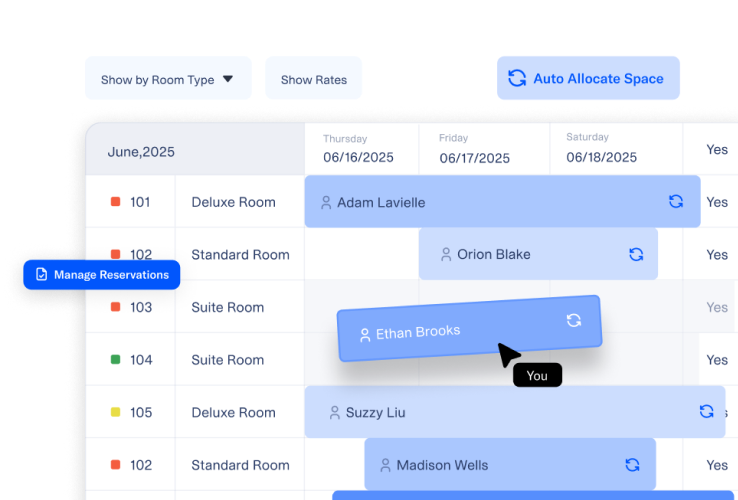
The transition to roommaster is straightforward and efficient. Our implementation team handles data migration including reservations, guest profiles, and historical information.
See how roommaster's unified platform can work for your property. Our team will walk you through features tailored to your specific needs and operations.